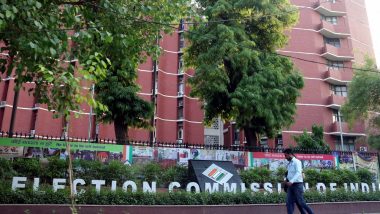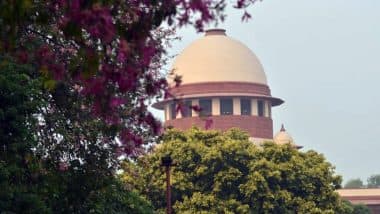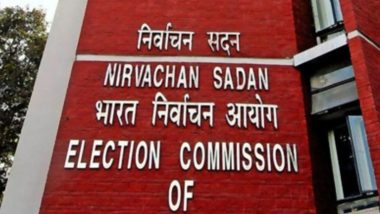Ranchi, November 1: Following the announcement of the full schedule of Assembly Elections for Jharkhand on Friday, the Model Code of Conduct (MCC) or Aachar Sanhita has come into effect in the state. With this, the role of incumbent Raghubar Das government has been reduced to that of a "caretaker" regime. Also, it has no power to announce any policy measures until the conclusion of elections. Apart from this, the Centre too can't issue any order which could influence the voters of the poll-bound state.
The Election Commission takes over law and order administration after the polling dates are announced as the MCC is rigorously enforced. Commonly known as Aachar Sanhita, MCC lays down the rules and norms for political parties and candidates participating in the polls. Jharkhand Assembly Elections 2019 Dates And Full Schedule Announced by Election Commission: Polling in 5 Phases From November 30 to December 20, Results on December 23.
What is MCC? Why It's Needed & How is it Enforced?
To keep the campaign fair and healthy, avoid clashes and conflicts between parties, and ensure peace and order, MCC is enforced by ECI. It aims to ensure that no ruling party, either at the Centre or in the states, misuse its official position to gain an unfair advantage in an election. The MCC act as an instrument to secure the democratic values of the country.
MCC is a document that was originated and evolved with the consensus of the political parties. It began in the late 1960s with a small set of Dos and Don’ts for the Assembly election in Kerala. The Code covered conducting of election meetings/processions, speeches, slogans, posters and placards (CEC-Shri K.V.K.Sundaram). As it attained success and was followed by both voters and political parties, it was followed in the Lok Sabha and Assembly elections in 1967.
MCC Applies to:
1) Elections to the Lok Sabha (House of the People).
2) Elections to the Vidhan Sabha (Legislative Assembly) of states.
3) Election to Vidhan Parishad (Legislative Council).
Dos and Don’ts for the Government:
1) Transfer of bureaucrats and officials is barred. Those transferred in this period cannot take charge of their new position.
2) No new scheme can be announced during this period.
3) Auctions for licenses and issuance of tenders are barred.
4) However, the government can continue the implementation of schemes that have been approved before the announcement of elections.
5) Funds for relief measures in times of natural or man-man calamity can be disbursed.
Dos and Don’ts for the Political parties and star campaigners:
1) All political parties need to inform the police about all campaign and propaganda it wishes to undertake.
2) No action can be taken by rallies' organisers against miscreants inhibiting party rallies, campaigns or roadshows.
3) The campaign in areas where other parties are organising political events is barred.
4) Potential contestant can't go to file his/her nomination with pomp/celebration.
5) Use of loudspeakers between 10 PM to 6 AM is barred. However, police permission is needed for the use of loudspeakers after this period.
6) All display of all election matter must be ceased by political parties 48 hours ending with the hour of the conclusion of the polls.
7) Recognised political parties can't have more than 40 such star campaigners.
8) For Non-recognised parties, star campaigners list can't exceed more than 20.
9) Names of star campaigners need to be provided to the EC at the time of every election.
MCC during Exit Polls:
1) MCC prohibits all exit polls and opinion polls for 48 hours, ending with the hour of the conclusion of the elections in a single-phase election.
2) MCC prohibits all exit polls and opinion polls for 48 hours, ending with the hour of the conclusion of the elections in the first phase of the election until the poll closes in the last phase of the election.
Dry Days during MCC:
Apart from other rules and regulations, the sale of liquor is also barred on the days of polling and counting of votes. Even liquor bars are prohibited from selling alcohol-related drinks, which can influence voters or create law and order in the state.
Is the MCC a legal document?
The MCC is not a legal document, not a statutory authority. As of now, MCC only stands as a guiding principle with no authority to punish. However, attempts are being made to amend the Representation of People’s Act, 1951.
(The above story first appeared on LatestLY on Nov 01, 2019 09:21 PM IST. For more news and updates on politics, world, sports, entertainment and lifestyle, log on to our website latestly.com).













 Quickly
Quickly





















